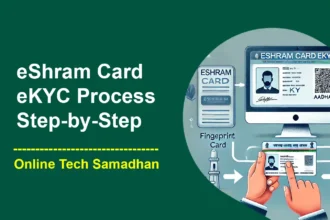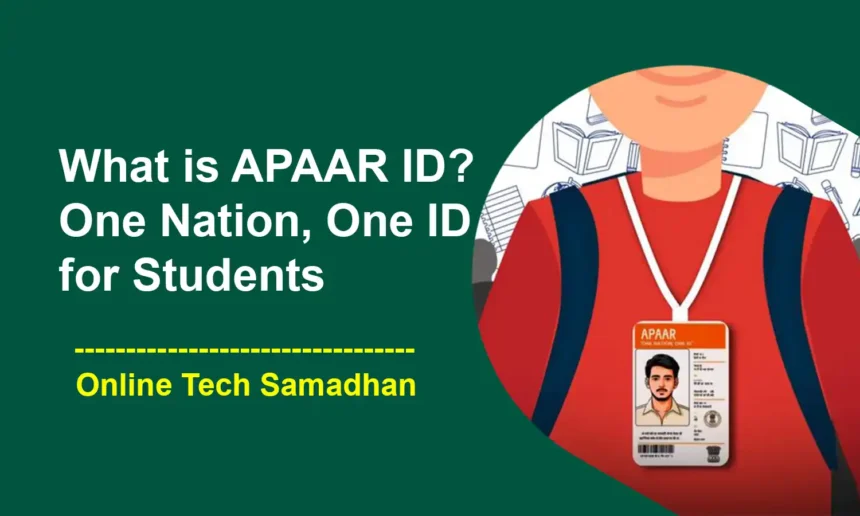What is APAAR ID? One Nation, One ID for Students
The Indian government has launched a new initiative to improve education in remote areas nationwide. The initiative is called ‘APAAR ID‘ and it has been launched by the Education Ministry. It aims to provide better access to education in remote areas through the use of Common Service Centres (CSCs). This post will discuss the details of this initiative and its potential impact on the education sector.

What is APAAR ID?
APAAR ID stands for ‘Access to Promoting Assistance & Academic Reinforcement’. It is an initiative of the Education Ministry that aims to provide better access to education in remote areas across India. The initiative will be implemented through the use of Common Service Centres (CSCs), which are digital access points that provide various services to citizens, including internet access, bill payments, and other government services.
The APAAR ID initiative will use CSCs to provide educational services to students in remote areas. These services include online and offline courses, digital content, and other educational resources. The initiative will also provide training to CSC operators to ensure that they can provide effective educational services to students.
You May Love To Read
Impact of APAAR ID
The APAAR initiative has the potential to improve access to education in remote areas across India significantly. Many students in these areas face significant challenges in accessing educational resources, including a lack of internet connectivity and a shortage of qualified teachers.
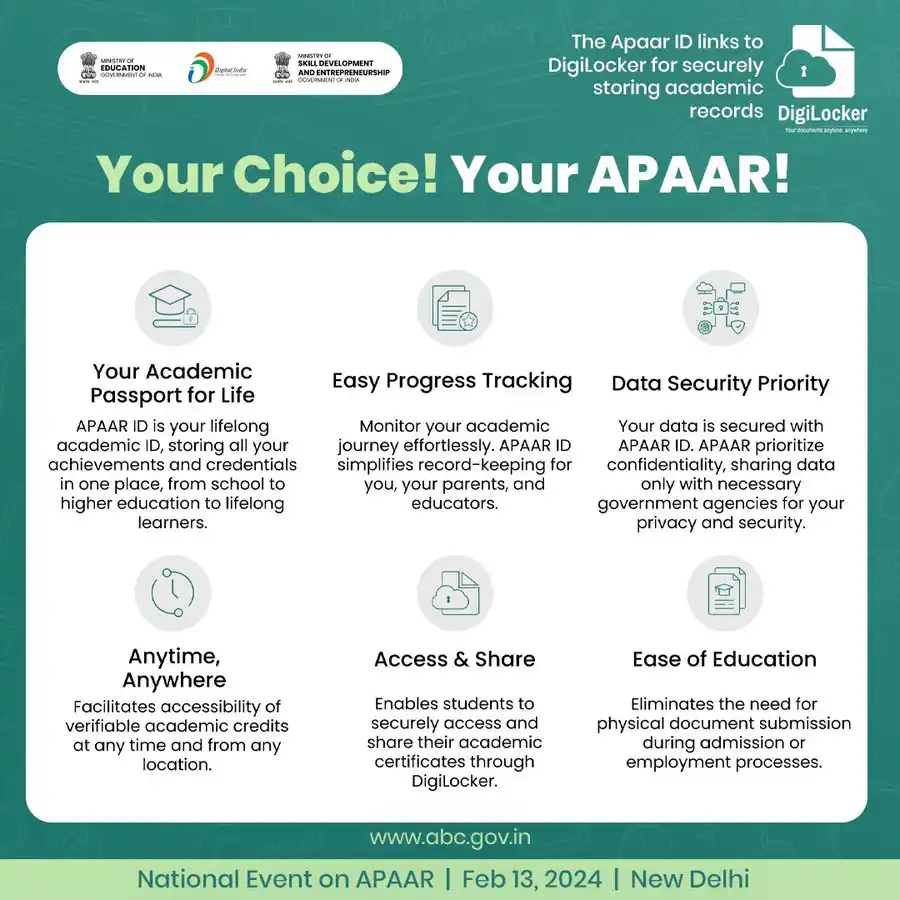
By using CSCs to provide educational services, the APAAR initiative can help to overcome these challenges. The initiative will provide students with access to a wide range of educational resources, including online courses and digital content. It will also provide training to CSC operators to ensure that they can provide effective educational services to students.
MoE Launches APAAR ID Card
The Ministry of Education (MoE) has introduced the Automated Permanent Academic Account Registry (APAAR) in rural areas, utilizing Common Service Centres (CSCs). This initiative aims to simplify the education system by requiring all college students to register on the Academic Bank of Credits (ABC) and obtain a unique ‘One Nation, One Student ID.’
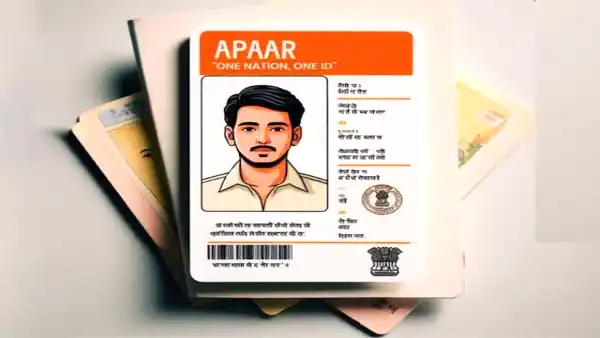
To enhance transparency and streamline the education process, students will be assigned a temporary APAAR ID, which will be linked to their Aadhaar and Digilocker accounts. This integration will ensure a seamless and secure means of identification and documentation for students.
Under the National Education Policy (NEP) of 2020, it is now mandatory for students to provide their ABC ID when seeking admission to any institution or university. This move will facilitate a standardized and centralized system for tracking academic progress and achievements, enabling students to easily access their educational records.
By connecting the APAAR ID with Aadhaar and Digilocker, the process becomes more user-friendly and accessible for students. It reduces the need for multiple identification documents and simplifies administrative procedures.
🌟 Join us for the National Event on APAAR in New Delhi on Feb 13, 2024! #APAAR i.e. Automated Permanent Academic Account Registry, represents the government's vision of #OneNationOneStudentID.
#LIVE at https://t.co/8F3ZZ8yeJW
Visit https://t.co/CVv9fEFp0l to know more… pic.twitter.com/nm9GdxTBlj
— Digital India (@_DigitalIndia) February 12, 2024The introduction of APAAR ID cards and the integration with the ABC system represents a significant step towards creating a unified and transparent education system in India, particularly in rural areas.
What Is the Academic Bank of Credits?
The Academic Bank of Credits (ABC) is a concept that aims to provide a framework for the accumulation, transfer, and recognition of academic credits earned by students. It is a system that allows students to build a personalized academic profile by accumulating credits from various educational institutions and programs.
You May Love To Read
- Renew Spotify Premium: A Quick Manual for Easy Renewals
- Sarathi Parivahan Sewa Portal: Easy Access Sarathi Services
- How to Open ITR PDF Password After Filing Income Tax Return
- How to Loop a YouTube Video: Step-by-Step Expert Guide 2024
- Artificial Intelligence Sales Jobs: A Lucrative and Future-Proof Career
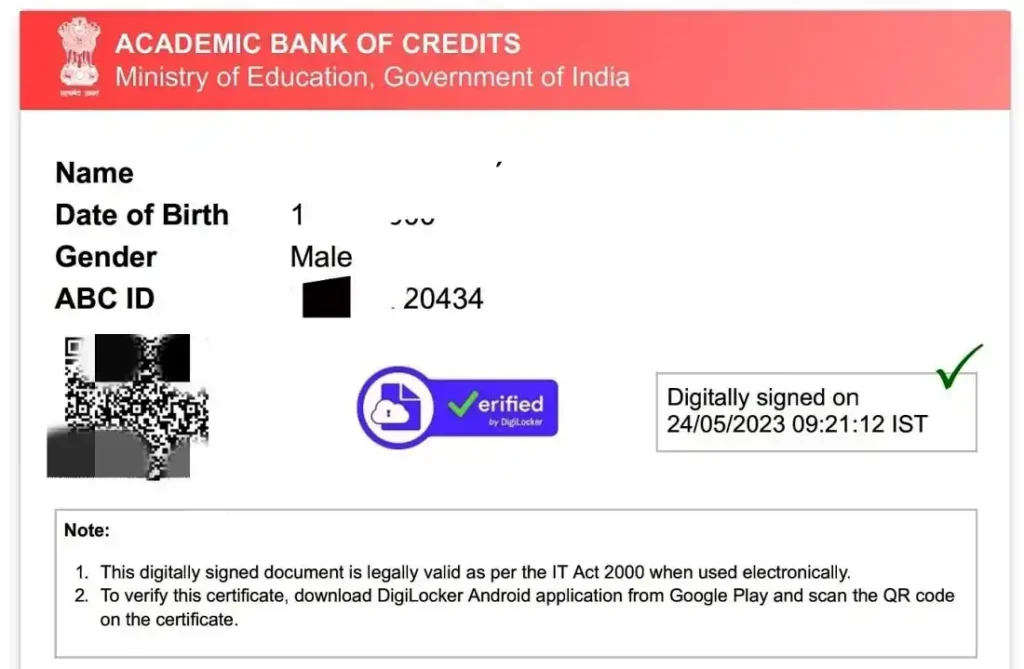
The ABC operates on the principle of credit transferability, where the credits earned by a student in one institution or program can be transferred and recognized by another institution or program. This system enables students to have more flexibility in their educational journey and allows them to customize their learning experiences according to their interests and goals.
In the ABC system, academic credits are typically assigned to courses or learning modules based on the workload and learning outcomes achieved. These credits can be accumulated over time and can be used to fulfill degree requirements or to gain entry into higher-level programs.
The benefits of the Academic Bank of Credits
- Flexibility: Students can choose courses or programs from different institutions and build their unique academic path.
- Mobility: The credits earned through the ABC system can be transferred between institutions, which facilitates student mobility and promotes lifelong learning.
- Recognition: The ABC system ensures the recognition of credits earned, providing students with a standardized measure of their academic achievements.
- Skill-based learning: The system encourages the development of skills and competencies by allowing students to choose courses or modules that align with their interests and career aspirations.
- Lifelong learning: The ABC system supports the idea of continuous learning, allowing individuals to acquire new knowledge and skills throughout their lives.
It is important to note that the implementation and structure of the Academic Bank of Credits may vary across different countries or educational systems. The specific policies and procedures related to credit transfer and recognition will depend on the governing bodies and institutions involved.
Conclusion
The APAAR initiative is an important step towards improving access to education in remote areas across India. By using CSCs to provide educational services, the initiative has the potential to provide students with access to a wide range of resources and to overcome the challenges of a lack of internet connectivity and a shortage of qualified teachers.
The success of the initiative will depend on the effective implementation of the program and the availability of resources to support it. However, if implemented effectively, the APAAR initiative has the potential to make a significant impact on the education sector in India and to improve the lives of millions of students in remote areas across the country.



